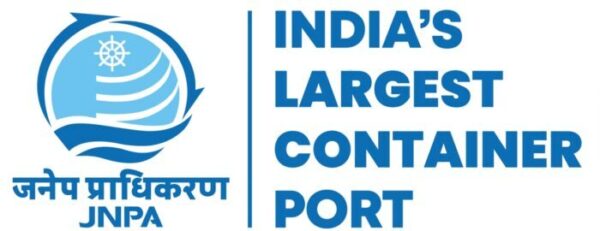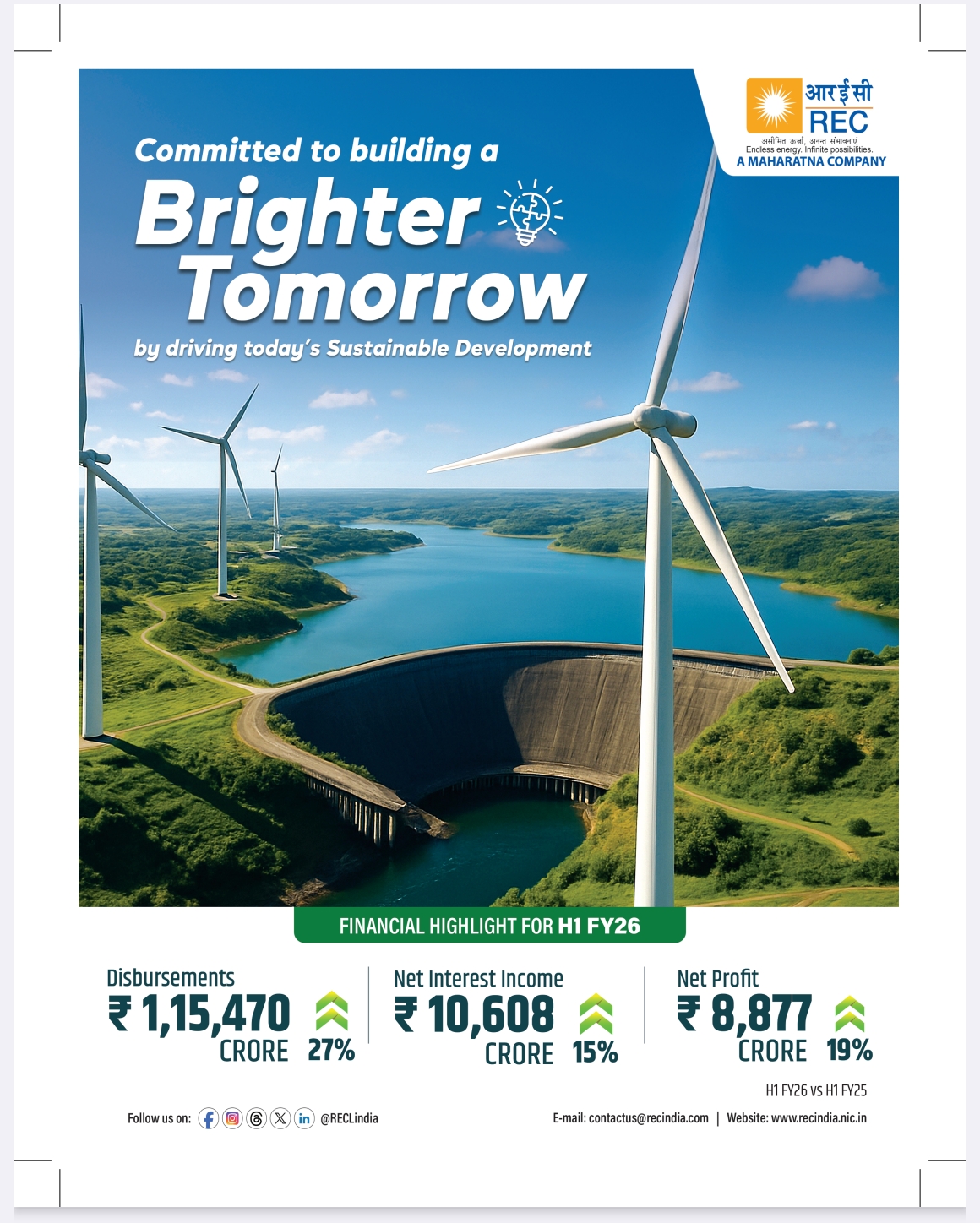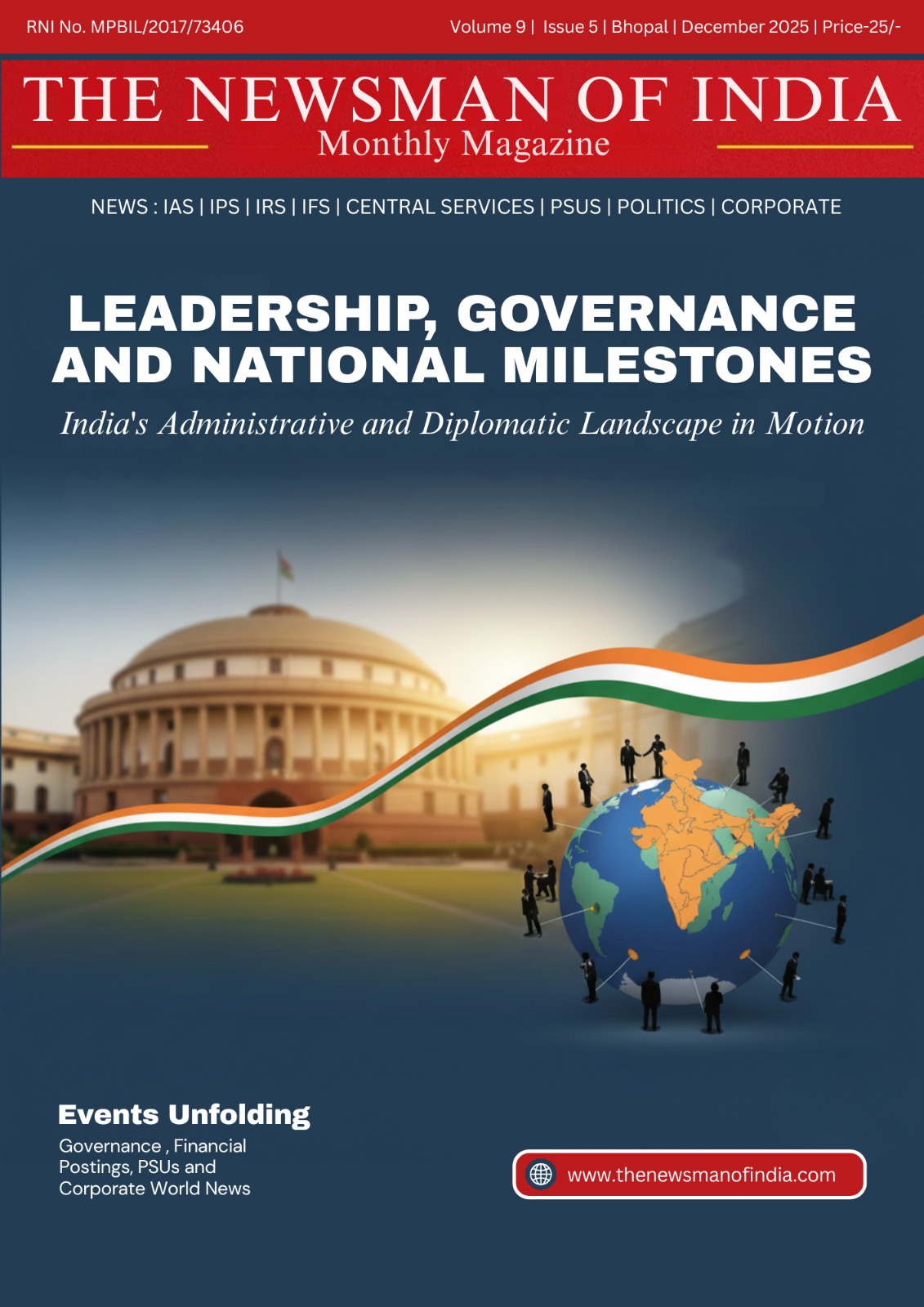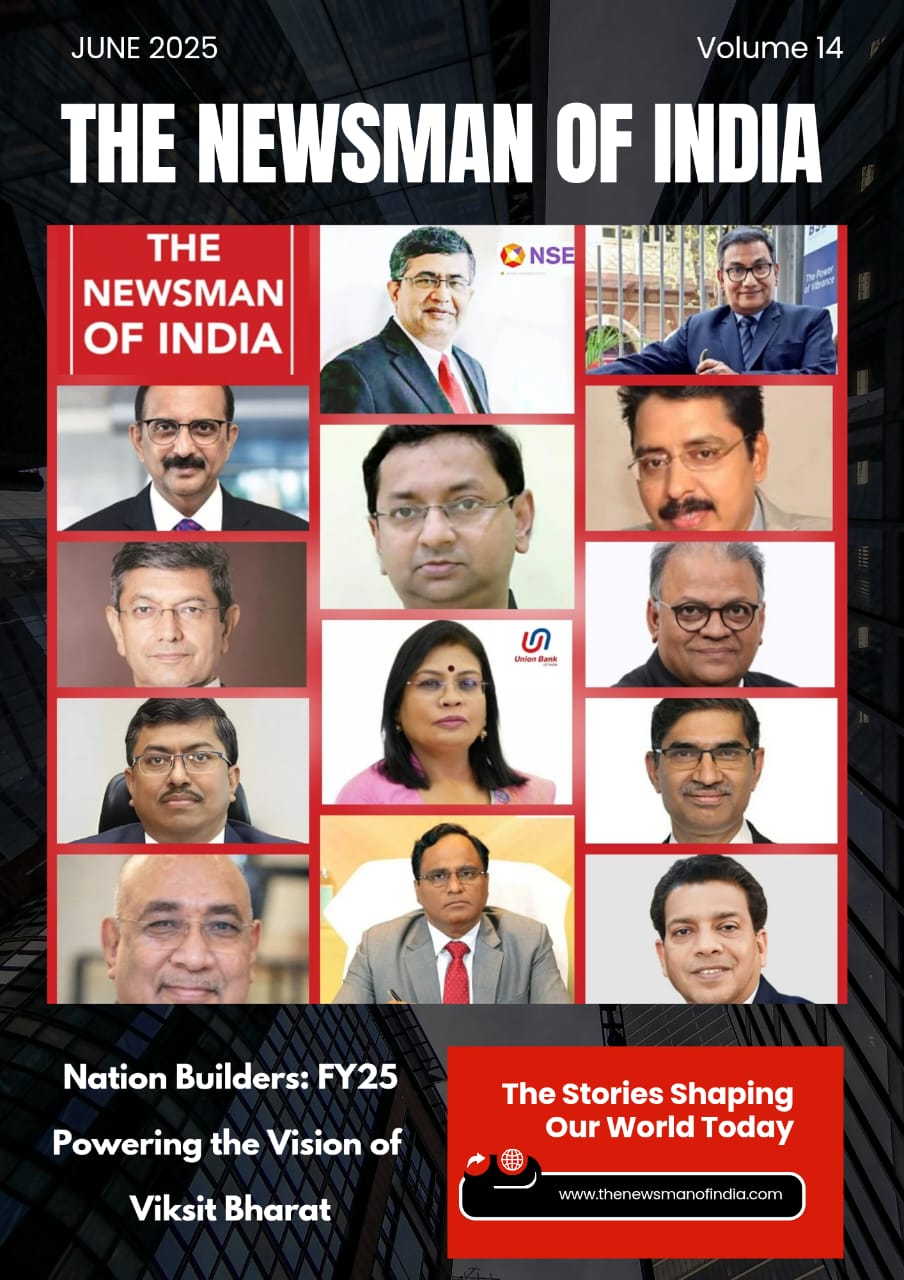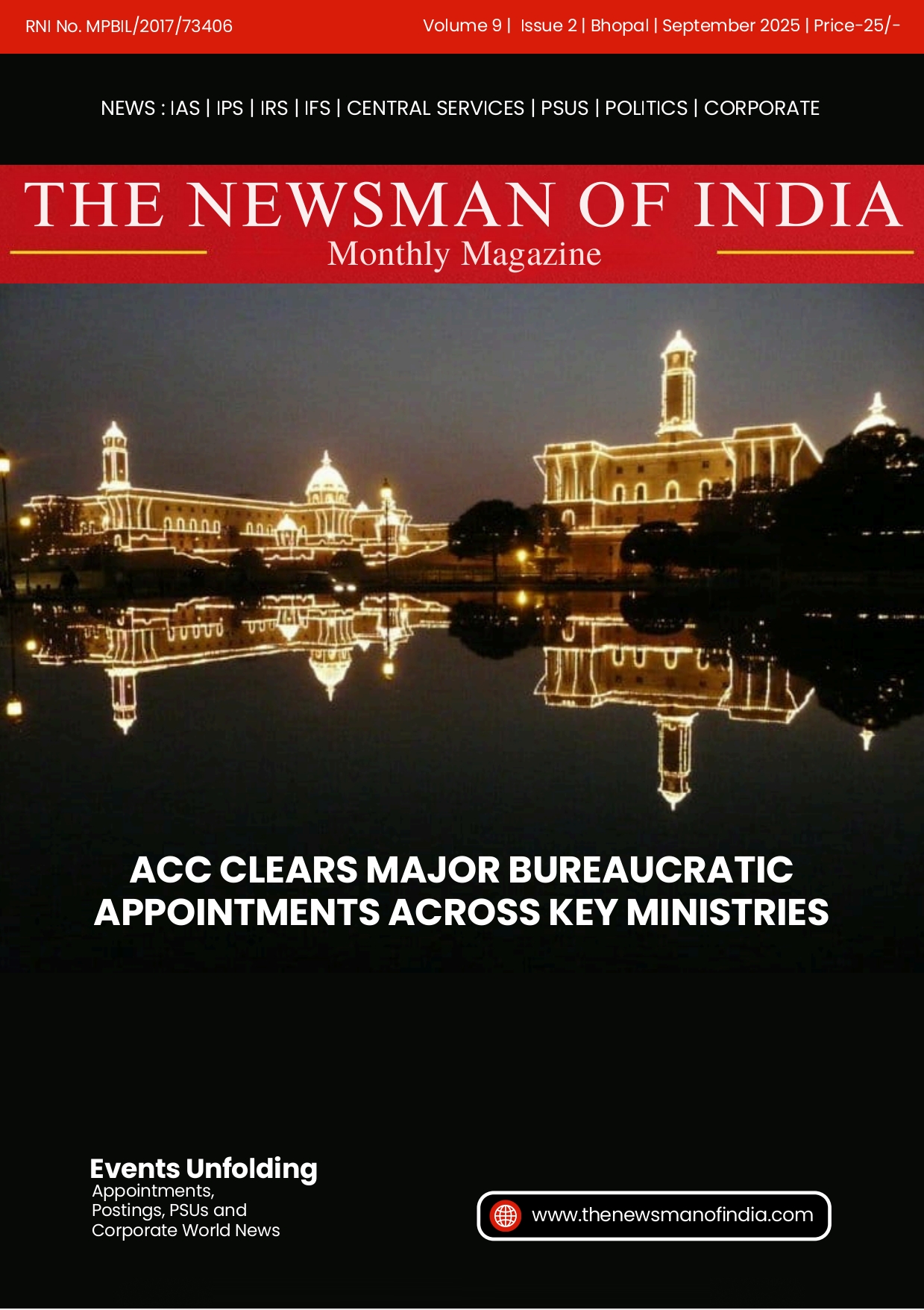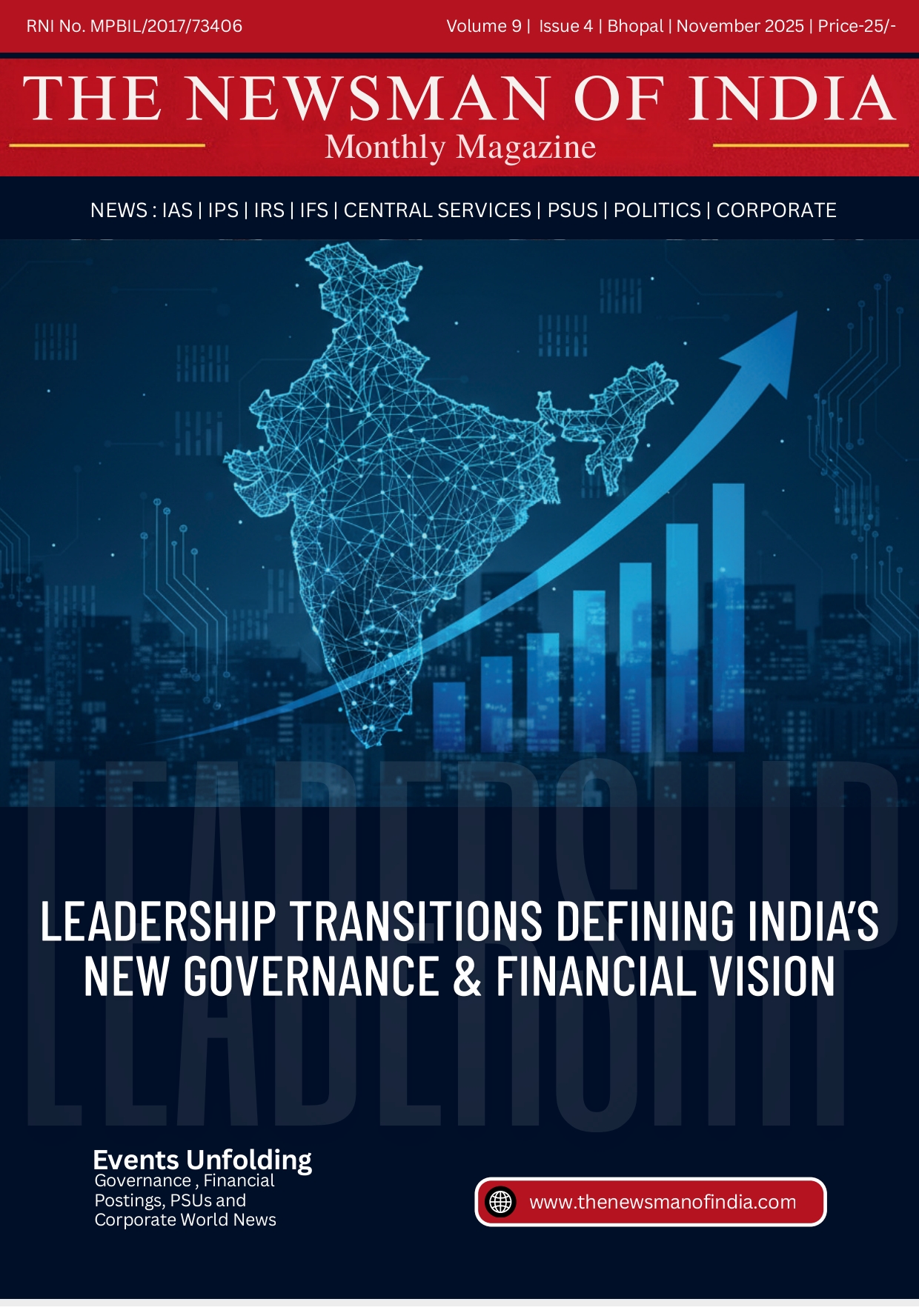8th Pay Commission Sparks Optimism Among India’s Civil Servants
Jun 14th, 2025 6:46 pm | By ThenewsmanofIndia.com | Category: SPECIAL NEWS COVERAGE
(THE NEWSMAN OF INDIA.COM)
8th Pay Commission Sparks Optimism Among India’s Civil Servants: A Closer Look at Expected Salary Revisions
The announcement of the 8th Pay Commission earlier this year has stirred palpable anticipation across India’s central government workforce, particularly among the nation’s civil servants—those who form the administrative and policy framework of the country. From Indian Administrative Service (IAS) officers to Indian Foreign Service (IFS), Indian Police Service (IPS), and Indian Revenue Service (IRS) officials, expectations are rising as projections for revised pay scales begin to take shape.
As the Union Government works through the structure of the upcoming pay commission, discussions suggest that the revised salary slabs will be based on an updated fitment factor, with calculations centered around proposed multipliers of 2.0, 2.25, and 2.50. This has set the stage for what could be a significant financial uplift for India’s civil services.
Who Are India’s Civil Servants?
Civil servants in India are selected through the rigorous Civil Services Examination (CSE) conducted annually by the Union Public Service Commission (UPSC). This prestigious examination filters candidates into over two dozen elite services, with the IAS, IFS, IPS, and IRS being the most sought after.
These officers hold crucial responsibilities in shaping and implementing government policies, managing public administration, internal security, foreign relations, and revenue systems. They serve at various levels of governance, from district administration to key central ministries. At the pinnacle of this structure is the Cabinet Secretary, who plays a vital role in advising the Prime Minister and coordinating high-level administrative decisions.
The Structure of Services
Beyond the four marquee services, the UPSC examination also places candidates in several other important Group A services, including:
* Indian Audit and Accounts Service (IA\&AS)
* Indian Civil Accounts Service (ICAS)
* Indian Corporate Law Service (ICLS)
* Indian Defence Accounts Service (IDAS)
* Indian Defence Estates Service (IDES)
* Indian Information Service (IIS)
* Indian Postal Service (IPoS)
Group B services also fall under the purview of the same examination, albeit with different hierarchical and operational roles.
Fitment Factor and Salary Projections
The fitment factor is a key component in determining the salary hike under the 8th Pay Commission. It refers to the multiplication factor applied to the existing basic pay to arrive at the revised salary. The 7th Pay Commission had used a fitment factor of 2.57. With the 8th CPC speculated to revise this metric, here’s how pay structures might evolve:
* At a 2.00 fitment factor: Entry-level civil servants might see moderate increases in take-home pay, with adjustments reflecting inflation and rising living costs.
* At 2.25: This could mark a more comfortable revision, bringing meaningful improvements in salaries across ranks, particularly benefiting mid-level officers.
* At 2.50: If adopted, it may result in one of the most generous revisions in recent times, ensuring better financial security and motivation for India’s civil service cadre.
Why the Revision Matters
Civil servants are not only policy implementers—they are also the custodians of the country’s constitutional framework and administrative continuity. Salary revisions through pay commissions are crucial to attract and retain top talent in government service, especially when competing with lucrative private sector opportunities.
Moreover, enhanced compensation plays a role in reinforcing ethical standards, improving job satisfaction, and ensuring a committed, performance-driven bureaucracy.
While the 8th Pay Commission’s final recommendations are yet to be tabled, early estimates and speculation have certainly sparked interest and hope. For India’s civil servants—who serve on the frontlines of governance, development, diplomacy, and law enforcement—a balanced and forward-looking pay structure will be essential in ensuring the machinery of the state remains efficient, motivated, and resilient.
As deliberations continue, THE NEWSMAN OF INDIA will keep a close watch on updates, bringing readers the latest insights on one of the most impactful reforms in public sector remuneration in recent years.



